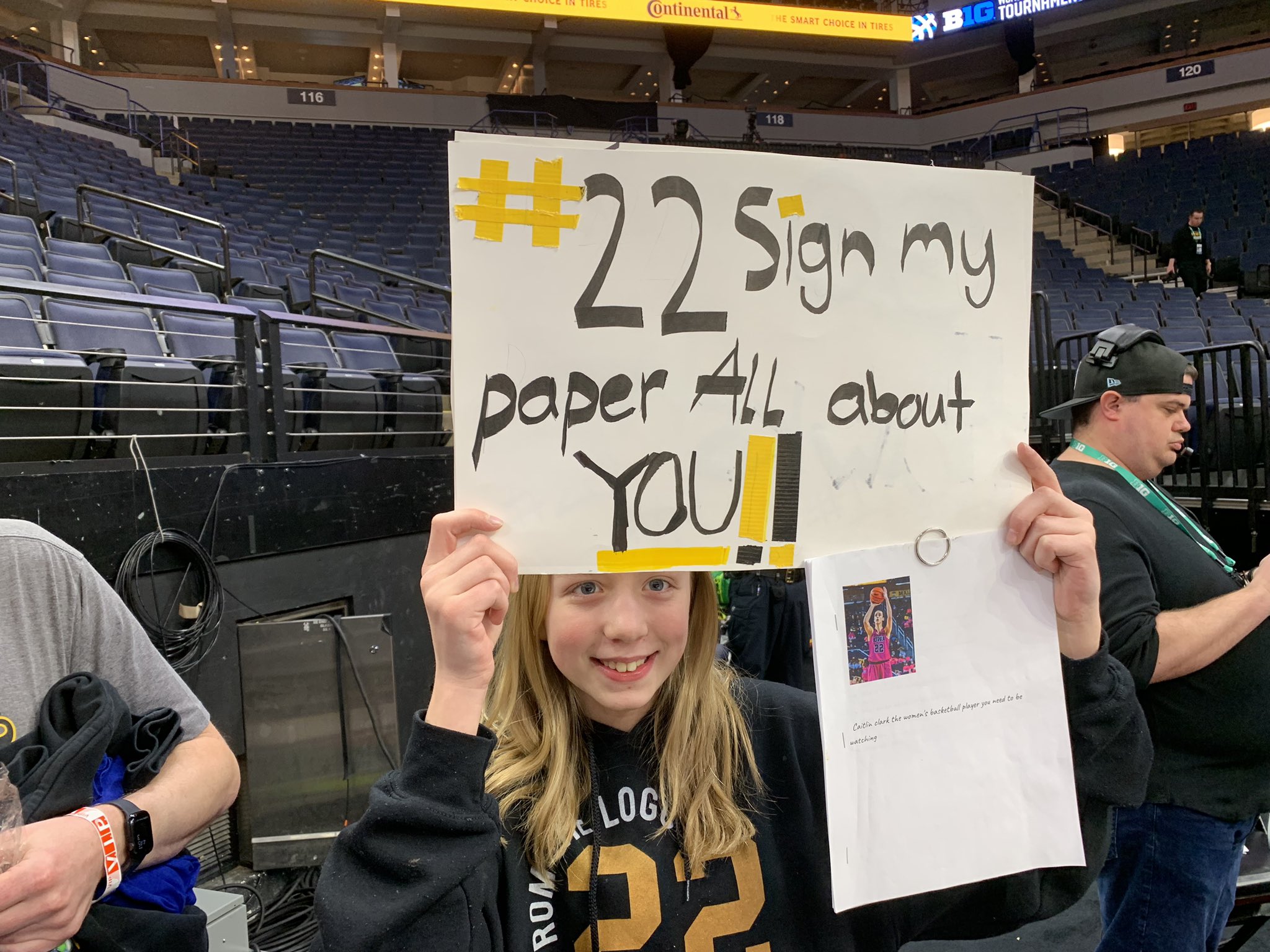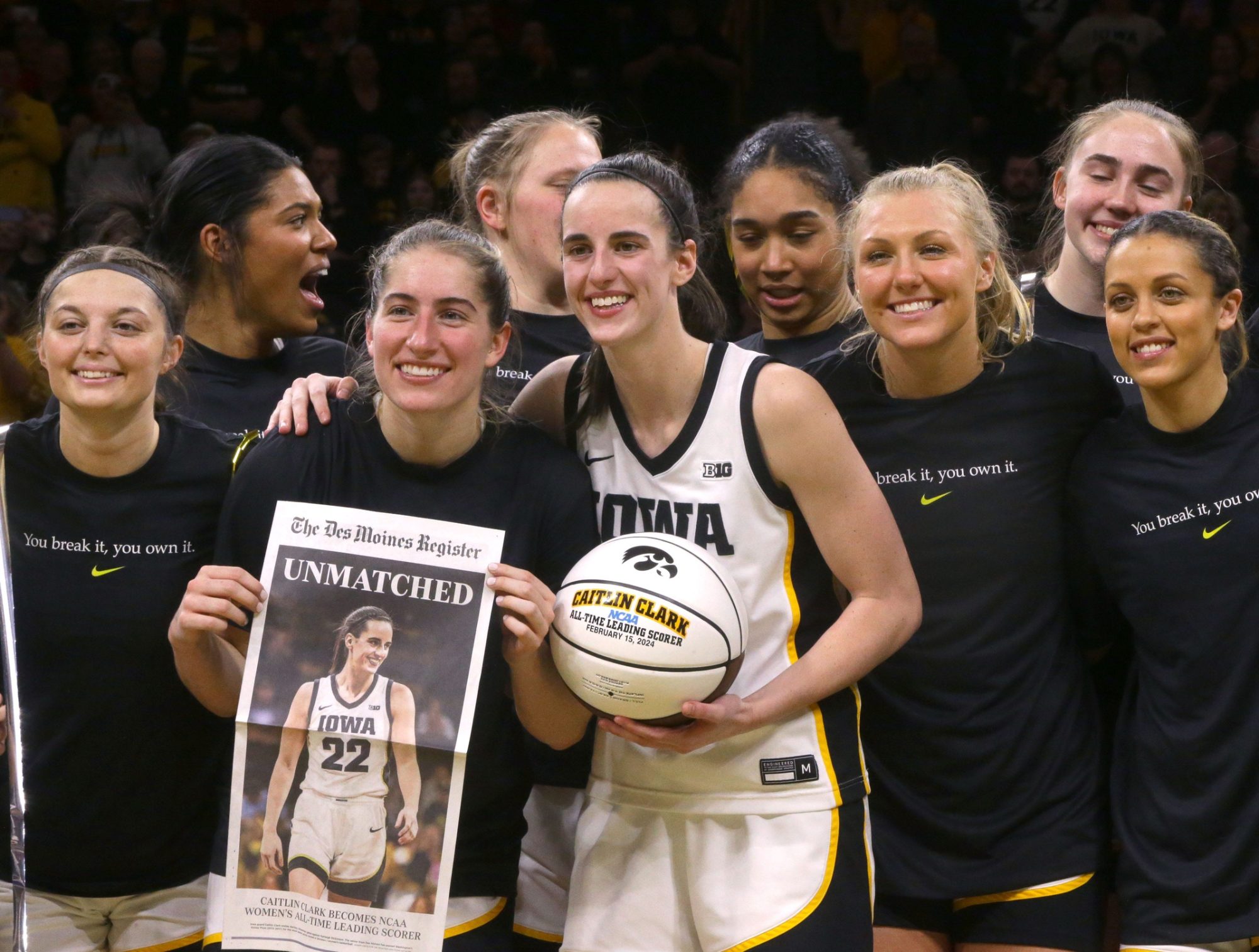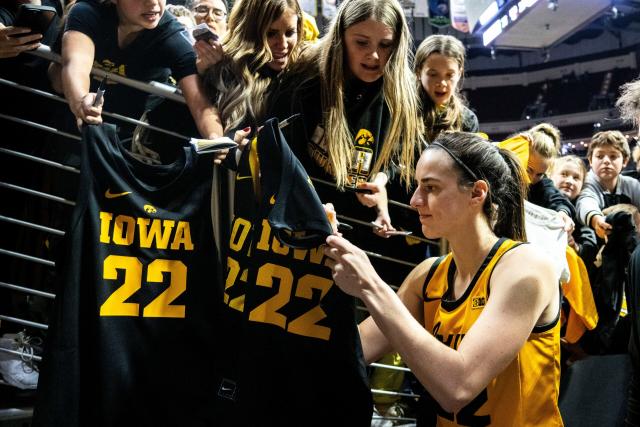Caitlin Clark, the University of Iowa athlete who last week became the all-time leading scorer in NCAA women’s basketball, is breaking more records.
Clark’s jerseys and shirts bearing her name are flying off the (virtual) shelves at Fanatics, with the guard becoming the online retailer’s top-selling college athlete since it began selling collegiate athletic apparel in 2022, the website told CNN.
A 2021 Supreme Court ruling allowed student athletes to make money off their personal brand — their name, image and likeness, known as NIL.
That meant athletes, like Clark, could start making money off their likeness.

Soon after, stores were also cashing in.
Fanatics told CNN that that it sold more Clark-branded merchandise “than any other individual men’s or women’s NIL-era college athlete across all sports has sold since 2022,” in less than 24 hours after she broke the record last Friday night.
She surpassed the University of Colorado Buffaloes quarterback, Shedeur Sanders, son of his coach and NFL Hall of Famer Deion Sanders, to earn the top spot on Fanatics’ website.
One notable piece of clothing that fans can’t get enough of on the site is a Nike made T-shirt that says “You break it, you own it” along with Clark’s last name and jersey number 22.
Other Clark items scoring with fans include Topps trading cards celebrating her record-breaking feat, which sold out in under 10 minutes, and her regular Topps Now card “among the top-10 Topps Now cards sold of all time, across all sports,” a Fanatics spokesperson said.
Clark cashes in
The Iowa star has become an economic powerhouse, putting a spotlight on the multi-million-dollar earning potential of some athletes in a new era of profitability in college sports.
Caitlin Clark has locked in lucrative sponsorships while making history on the court.
Clark, 22, has signed deals with Gatorade, Nike and State Farm, among others. Sports data site On3 estimates the total value of those partnerships at $818,000 — the fifth-highest ranking in all of women’s college sports, and multiples higher than Clark can expect to make as a pro in the WNBA, where the top salary currently maxes out around $250,000.

Brands are increasingly hungry to partner with college athletes who can help them reach younger consumers, especially young women who are most likely to cultivate loyal social media followings.
And the growing profiles of top athletes like Clark are helping to bring more attention — and more revenue — to women’s college sports programs and professional leagues.
“Corporate America obviously wants to target younger people, and part of that is the lifetime customer value,” said Patrick Rishe, director of the sports business program at Washington University in St. Louis.
He added that Clark herself has a following of “Clarkies.”






